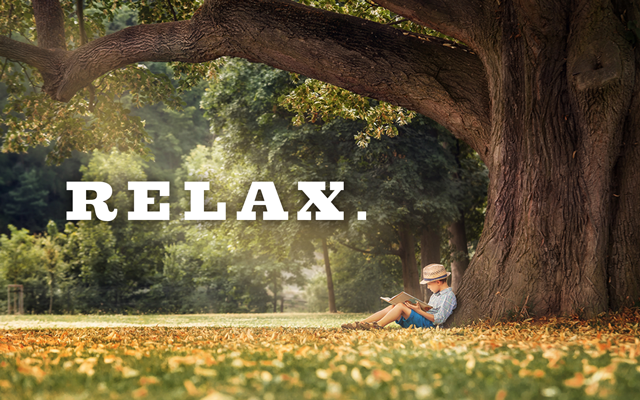Relax


When I graduated high school after eleven years of homeschooling, I did some reflecting about what I would keep and what I would change for my own kids. There was no question I wanted to continue homeschooling into the next generation, and I knew there was a good chance my kids would take after their mom!
1. The first thing I realized was most of the things that made a difference in my life had not come from official “schoolwork.” I had learned more about history and culture from listening to my dad’s conversation around the dinner table than from any textbook. I also learned from reading books like the Little House series and other stories set in different places and times. Often, I would get in trouble for abandoning my assigned lessons to spend a day lost in one of these stories. But even if it was a total fictitious setting, I was still learning what it was like to be a human who wasn’t just like me who cared deeply about the big issues of life.
This meant long before I ran into literature-based curriculums I had my antennae up watching for something in that vein. We do need to develop a framework to hang the events of history together, but that is only the skeleton to start from. My goal was to share great stories about other eras and cultures with my kids so they would have an expanded view of God’s work in history and feel the connection we have with others across time and space. Delightfully, today there are many curriculums using this style, and we have the fun problem of deciding between excellent programs!
2. I also knew tests were something I would avoid as much as possible. Whether it was math, science, or music, I found myself almost instantly forgetting things learned only to pass a test. Not that I have anything against assessments—some of my favorite school memories are of filling out little circles for the CAT. But when I would have a topic and immediately take a test to see if I understood, there was something about the aftermath that opened the exit valves in my brain and let almost everything I learned escape, even if I wanted to recall it!
For my own family this means I take much more of a Charlotte Mason approach. Anytime I can have the children share what we are learning with Daddy or some other sympathetic adult, I try to have them present what stood out to them. I even started a podcast so my children could gain experience giving reports where the audience is absolutely real, just like what adulthood will require of them. I will have to teach my kids to take tests for higher education. But that will be one of the skills they develop specifically to function in college, not the measurement I require to prove to me they are learning anything.
3. I’ve learned to relax when our brains glitch. When something just wouldn’t click with me, whether it was math, sewing, or some technical aspect of music, I discovered pushing hard wasn’t the answer. When a conundrum brought me to tears, the best thing I could do for myself was to let it go for a while. A good sleep, a fresh perspective, sometimes a vacation (my piano teacher always chaffed at those), would allow me to come back to my problem only to find it a tiny one.
Whenever one of my kids just isn’t getting a math concept, even with assistance, and they are starting to lose their cool, I call an immediate halt. The first few years of doing this I would worry they would take advantage of this laxness and use frustration as a quick escape from work, but I haven’t found this to be true. First, if they don’t finish their math, they don’t get their screen time reward, but even more so I find they are all motivated to prove to themselves that they can master the concept. And they always do.
4. Last, I remember to focus on the long-range goal. Most adults remember only a small percentage of the things they studied yet manage to function well in society. Our family actively casts a vision for the kids to aim for their future, focuses consciously on connecting with Jesus as our power source, and cultivates a culture of delighted learning. If my kids know how to acquire the knowledge and skills they will need for any new situation, if they enjoy learning long after I stop making them, if they can put themselves in other people’s shoes and love them as Jesus’ ambassadors, I have succeeded.
Cheri Fields is a 2nd generation homeschooler involved in learning and teaching at home since 1982. She currently teaches her seven kids in Michigan and has found ways to include them in the online ministry God has called her to, particularly as cohosts for their family’s podcast. You can find her at https://creationscience4kids.com. She is a member of the International Association of Creation and a graduate of the Institute for Children’s Literature.










































